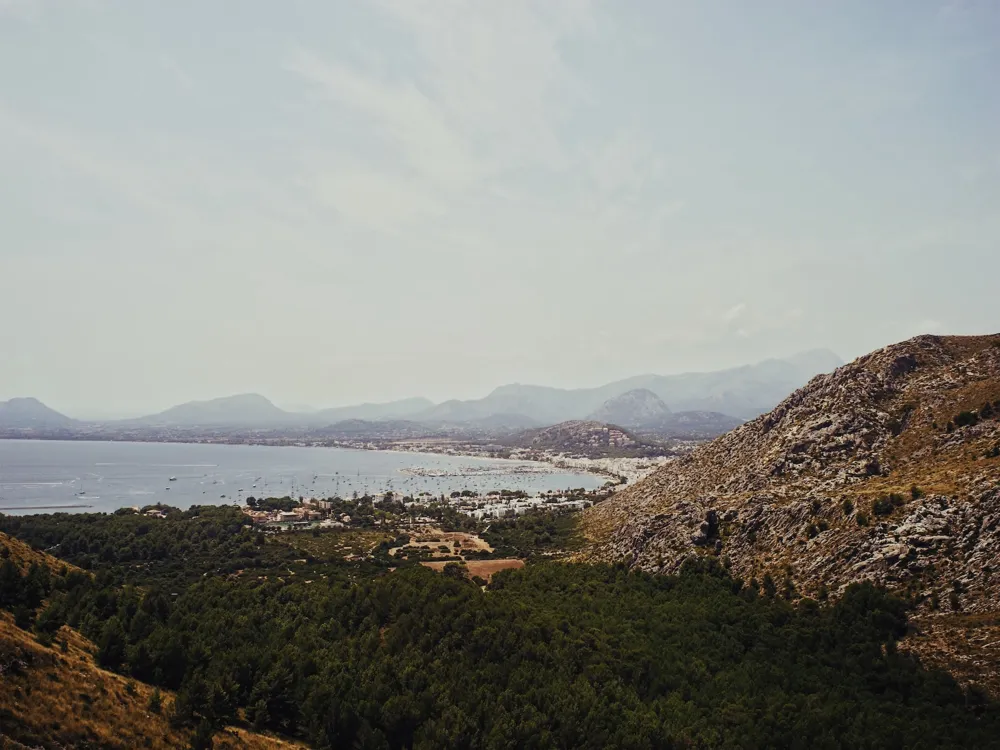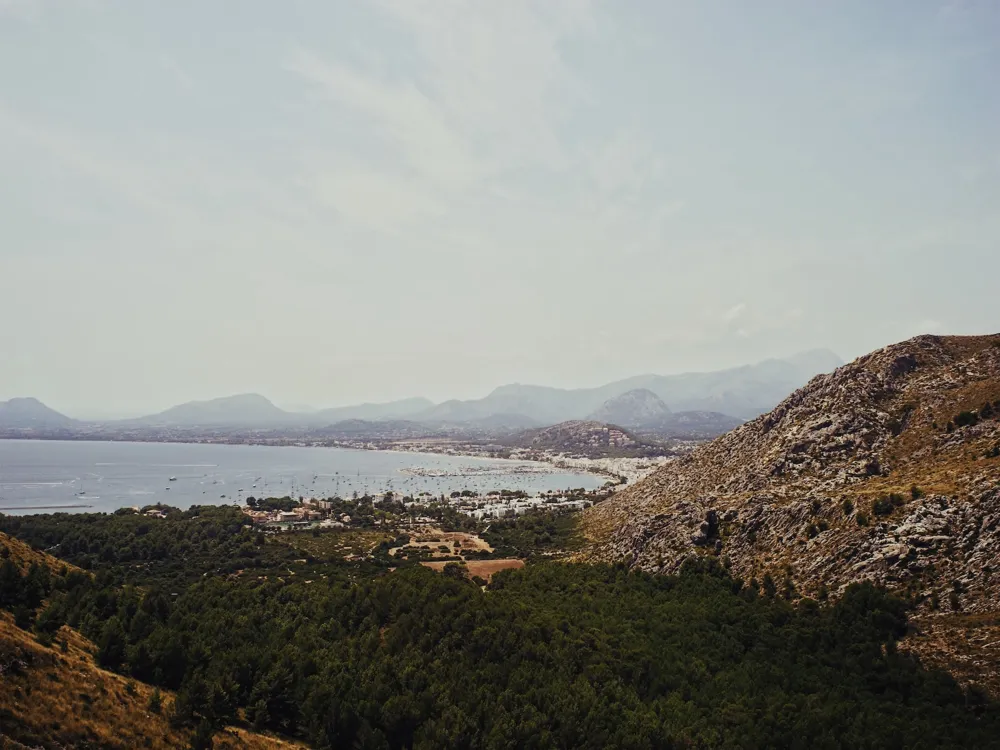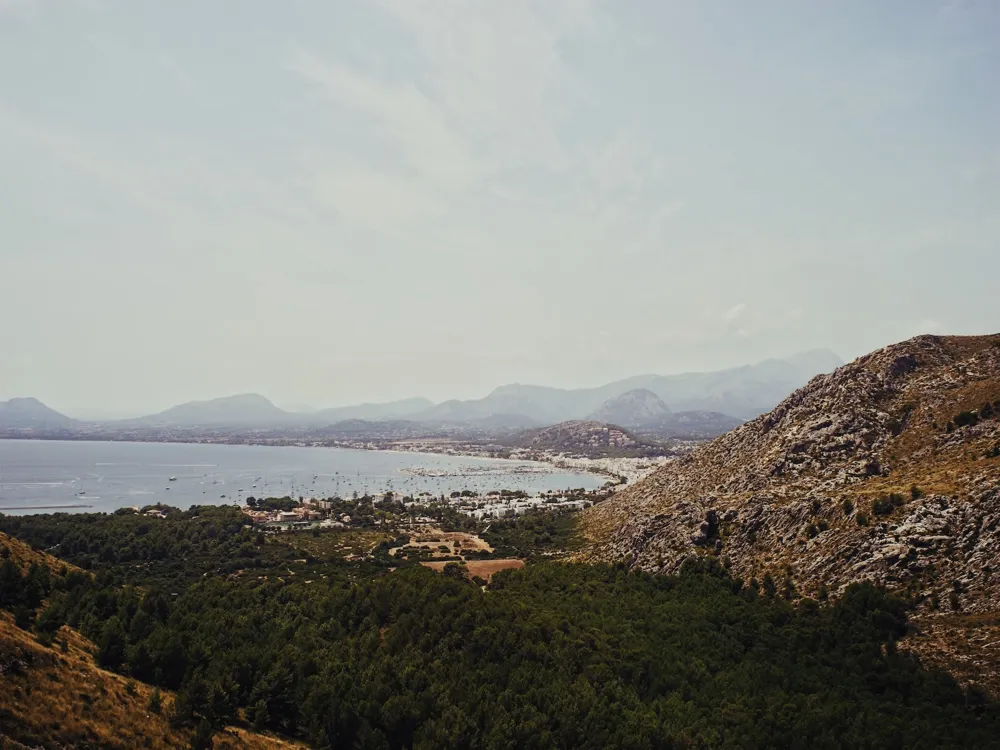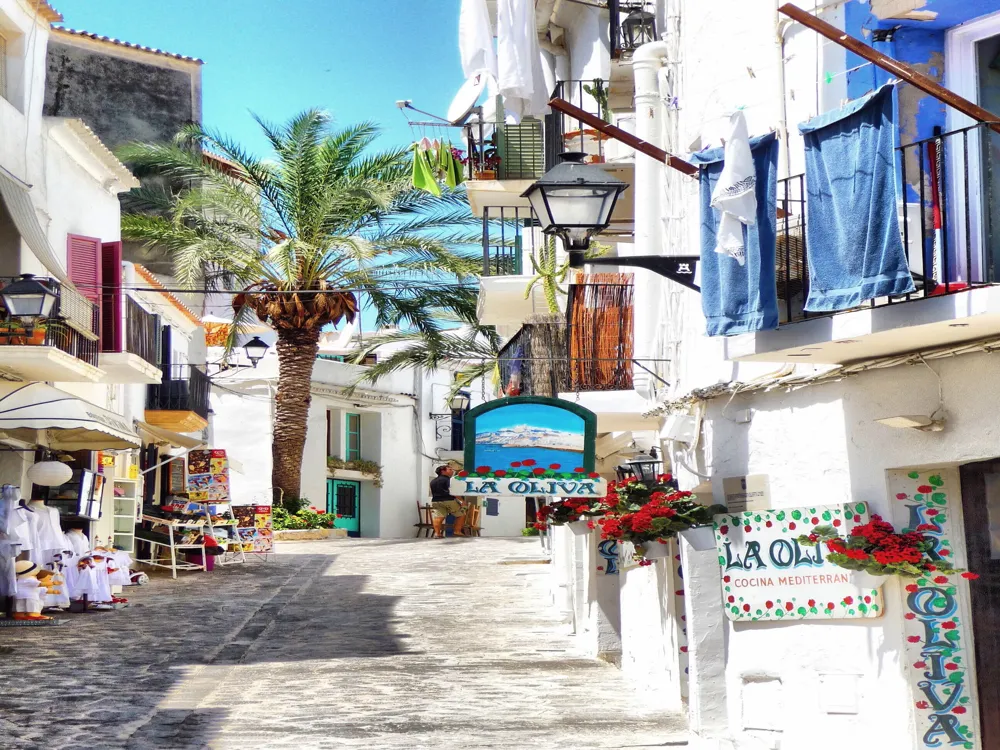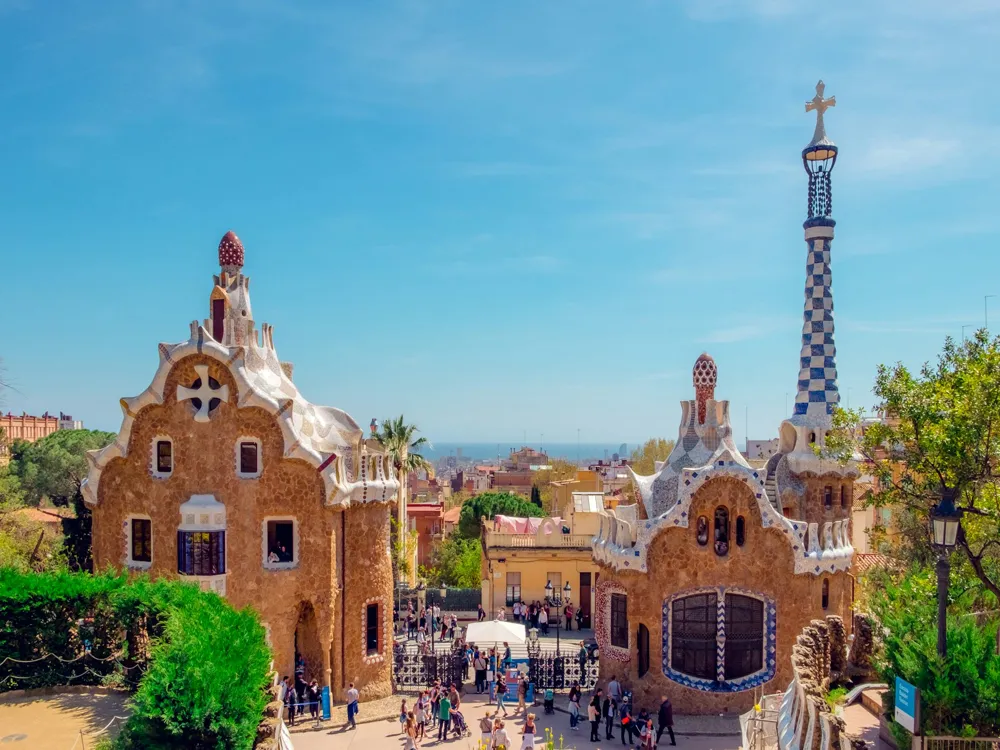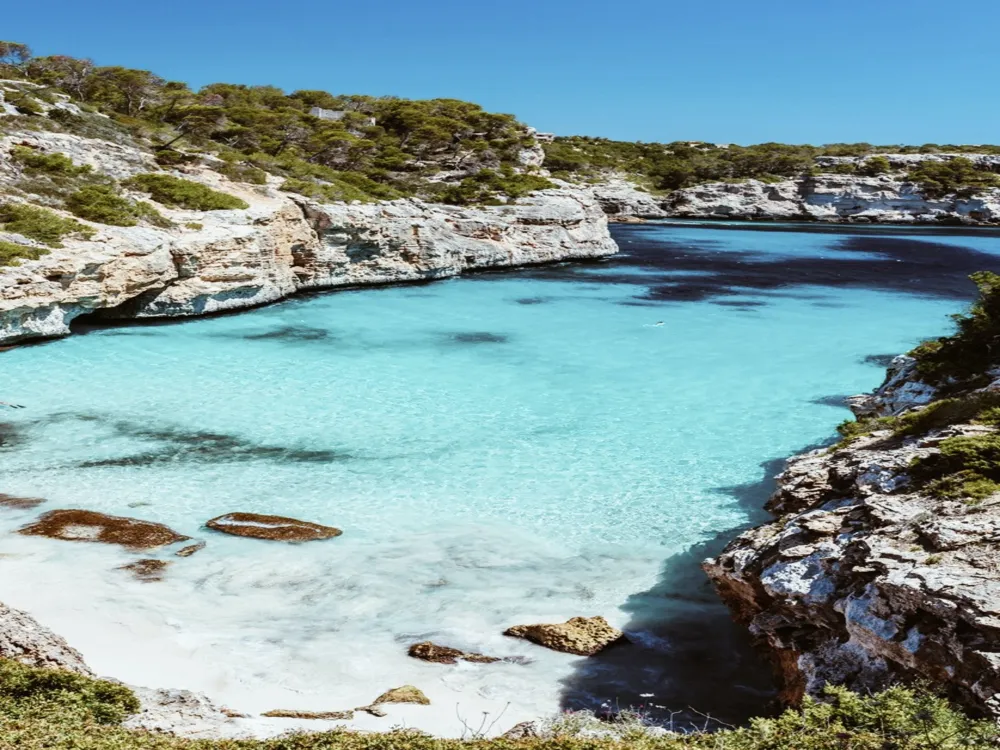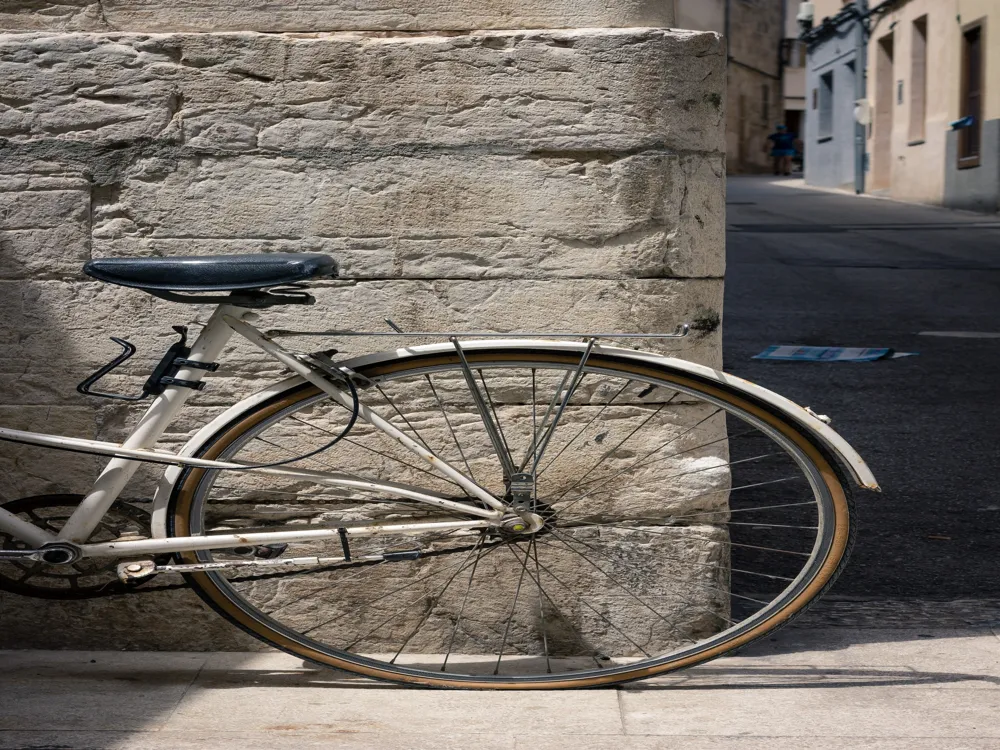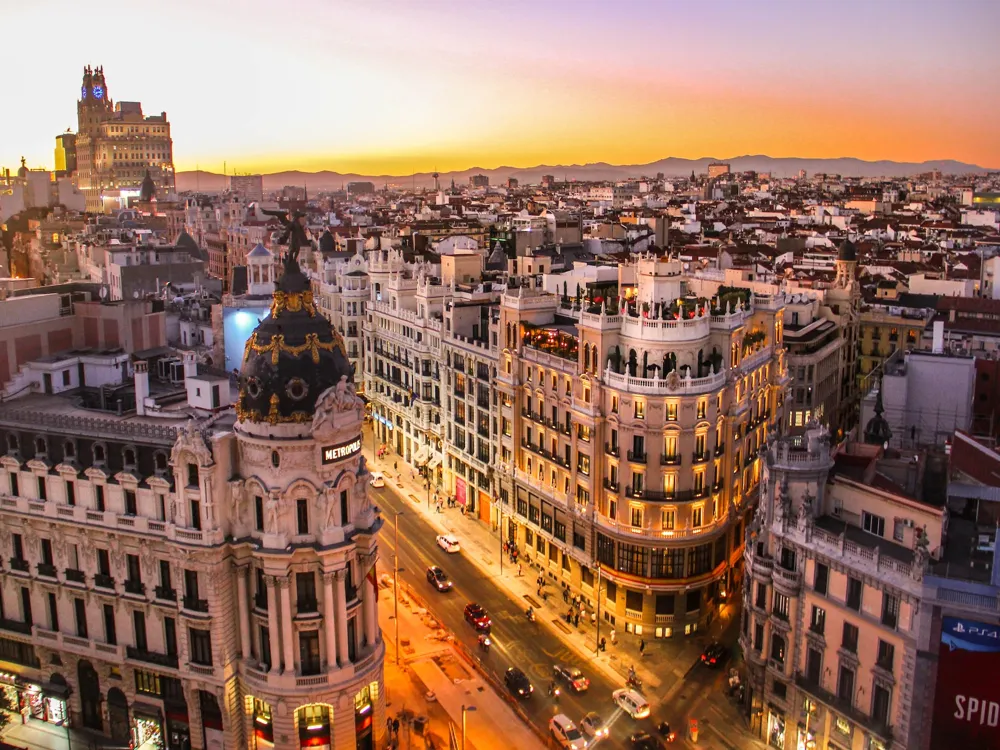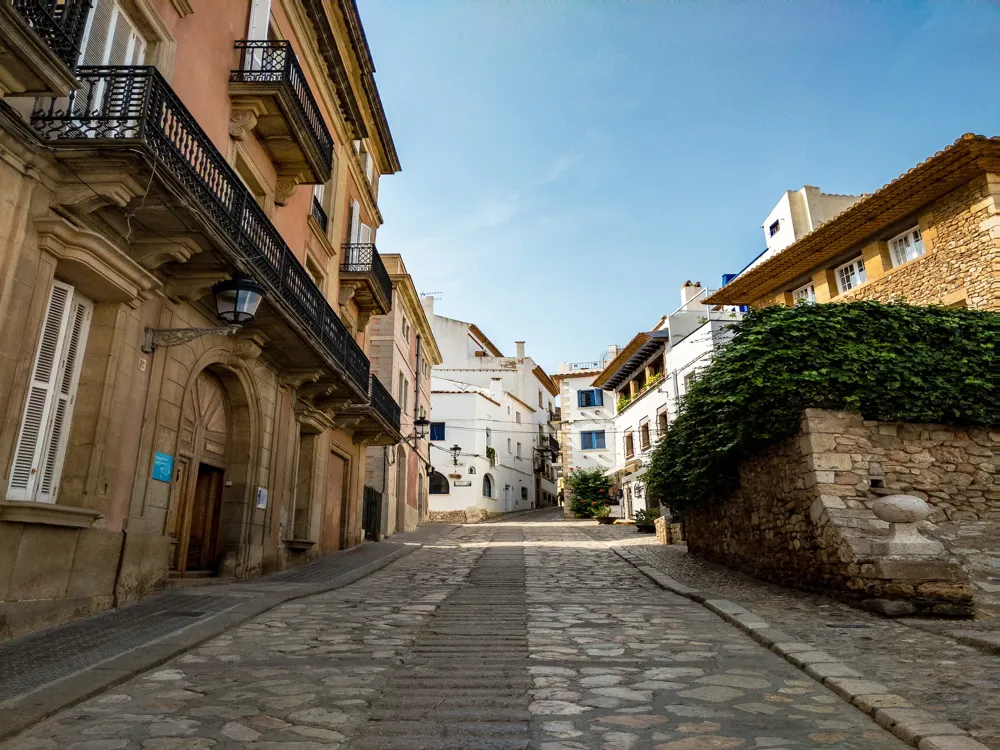Nestled on the idyllic island of Majorca, Parc Natural de Mondrago is a breathtaking nature reserve that epitomizes the unspoiled beauty of the Balearic Islands. Spanning over an area of 766 hectares, this natural haven is renowned for its diverse landscapes, ranging from serene beaches to rugged cliffs, and its unique ecosystem that serves as a habitat for a myriad of flora and fauna. Established in 1992, the park has since become a cherished destination for nature lovers, bird watchers, and anyone seeking a tranquil escape from the hustle and bustle of modern life. The park's terrain is a mosaic of contrasting environments. Sandy beaches such as S'Amarador and Cala Mondrago are among the most picturesque in Majorca, boasting crystal-clear waters and fine, golden sands. These beaches are not just for relaxation; they are also vital nesting grounds for various bird species. Inland, the scenery transforms into a lush tapestry of Aleppo pine forests, Mediterranean scrubland, and agricultural fields, offering a different but equally enchanting experience. The biodiversity of Parc Natural de Mondrago is one of its most outstanding features. The park is home to over 70 species of birds, including the Balearic Warbler and the Audouin's Gull, making it a paradise for birdwatchers. The array of plant species is equally impressive, with over 500 varieties, some of which are endemic to the Balearic Islands. This rich biodiversity is a testament to the park's ecological importance and its role in preserving the natural heritage of Majorca. Visitors to Parc Natural de Mondrago can indulge in a variety of activities. Hiking trails wind through the park, allowing visitors to explore its natural wonders at their own pace. The trails are well-marked and vary in difficulty, making them accessible to everyone, from casual walkers to seasoned hikers. For those interested in learning more about the park's environment, the visitor center offers educational exhibits and guided tours, providing insights into the park's ecosystem and conservation efforts. While Parc Natural de Mondrago is predominantly known for its natural landscapes, the architecture within and around the park is equally fascinating. The architectural elements in the park blend seamlessly with the natural surroundings, emphasizing conservation and sustainability. Traditional stone walls, known as 'marges', are a common sight. These walls, built without mortar, have been used for centuries to delineate property boundaries and manage livestock. They also serve as habitats for various small animals and insects, contributing to the park's biodiversity. The park's visitor center is a model of eco-friendly architecture. Constructed with sustainability in mind, it utilizes natural materials and is designed to minimize its environmental impact. The building's design reflects the traditional Majorcan style, with terracotta tiles, white-washed walls, and wooden beams, providing visitors with a sense of place and history. Surrounding the park are remnants of Majorca's agricultural past. Traditional farmhouses, or 'fincas', dot the landscape, some of which have been converted into accommodations or restaurants. These structures, often centuries old, are built in a rustic style that embodies the island's architectural heritage. Their thick stone walls, terracotta roofs, and wooden shutters are not only aesthetically pleasing but also functional, providing insulation against the Mediterranean climate. Another notable architectural feature in the vicinity of the park is the network of 'safareigs' or communal water reservoirs. These reservoirs, historically used for irrigation and livestock, are examples of the ingenious water management systems developed in Majorca. The safareigs, often lined with stone and shaded by trees, add a unique element to the landscape and are a reminder of the island's agrarian roots. The ideal time to visit Parc Natural de Mondrago is during the spring (April to June) or early autumn (September to October). During these months, the weather is pleasant, and the park is less crowded, offering a more serene experience. The spring also coincides with the blooming of wildflowers and the migratory season for birds, making it a particularly rewarding time for nature enthusiasts. When visiting the park, it's essential to come prepared. Bring comfortable walking shoes for exploring the trails, a hat and sunscreen to protect against the sun, and plenty of water to stay hydrated. Binoculars are a must for birdwatchers, and a camera is recommended to capture the stunning scenery. It's also advisable to bring a light jacket, as temperatures can drop in the evening. As a natural reserve, it's crucial to respect the environment of Parc Natural de Mondrago. Stay on marked trails to avoid disturbing wildlife and habitats. Littering is strictly prohibited, and visitors are encouraged to leave no trace. Be mindful of the local flora and fauna, and avoid picking plants or disturbing animals. Parc Natural de Mondrago is located in the southeast of Majorca and is easily accessible by various means of transportation. By car, it's about an hour's drive from Palma, the island's capital. There's a parking area near the park entrance, though space can be limited during peak season. Public transportation options include buses from Palma and other major towns on the island. For a more scenic route, consider renting a bicycle and enjoying the picturesque countryside en route to the park. Read MoreOverview of Parc Natural de Mondrago in Majorca
Architecture of Parc Natural de Mondrago
Tips When Visiting Parc Natural de Mondrago
Best Time to Visit
What to Bring
Respecting the Environment
How To Reach Parc Natural de Mondrago
Majorca Tourism
Best Time to Visit Majorca
How to Reach Majorca
Things To Do Majorca
Parc Natural de Mondrago
Majorca
NaN onwards
View majorca Packages
Majorca Travel Packages
View All Packages For Majorca
Top Hotel Collections for Majorca

Private Pool

Luxury Hotels

5-Star Hotels

Pet Friendly
Top Hotels Near Majorca
Other Top Ranking Places In Majorca
View All Places To Visit In majorca
View majorca Packages
Majorca Travel Packages
View All Packages For Majorca
Top Hotel Collections for Majorca

Private Pool

Luxury Hotels

5-Star Hotels

Pet Friendly







